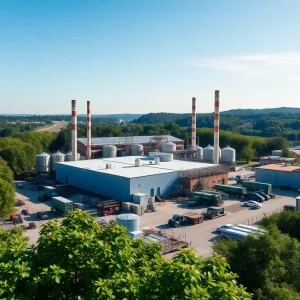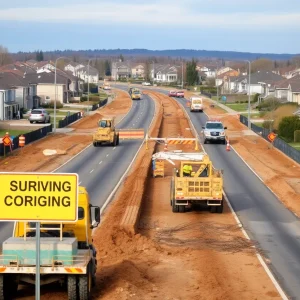New Traffic Study Requirement Approved in Irmo
Irmo — The Town Council of Irmo has officially approved a new ordinance that requires more thorough traffic studies for proposed developments within the town. This decision comes after residents raised concerns about traffic issues surrounding a planned housing project, which sparked local debates and protests.
On August 20, the Town Council unanimously voted to implement this change. From now on, any project that is projected to generate more than 50 car trips per hour on town-owned roads must conduct a detailed traffic study. These studies will be conducted by the town itself but will be funded by the developers of the projects. Before any votes are made on these developments, the results of the traffic studies will be presented to the town’s Planning Commission.
Background of the Change
This ordinance was motivated by the recent controversy over the proposed $65 million, 550-unit mixed-use project known as Water Walk. The Planning Commission voted against this proposal on August 12, primarily due to traffic concerns raised by local residents. Although the vote at that meeting was about zoning changes and not specifically traffic, the discussions highlighted a growing unease about the impact of new developments on local traffic.
In previous discussions, town officials noted that they often felt left out of traffic-related conversations between developers and the South Carolina Department of Transportation (DOT). Councilman Erik Sickinger emphasized the importance of local involvement in traffic assessments, stating, “Traffic obviously is a big deal right now. For us to be able to lay a foundation for this study is important.”
Details of the New Rules
The new traffic study rules will apply equally to both residential and commercial developments. To ensure adherence, the town will hire a traffic consultant to determine whether a proposed project meets the threshold for requiring a comprehensive traffic study. This move aims to offer better assurance to residents regarding the potential repercussions of new developments on traffic.
Councilwoman Phyllis Coleman expressed her support for the new ordinance, stating, “I like the fact that the town is taking a more proactive engagement in trying to address concerns of our citizens over traffic.” She added that this level of involvement would help the town collaborate effectively with developers to ensure thoughtful planning.
Looking Ahead
Despite the setback of the Water Walk proposal, the developers, Material Capital Partners based in Charleston, are expected to return with an amended proposal at the next Planning Commission meeting scheduled for September 9. Even though the original proposal was rejected, the land is currently zoned for over 700 residential units and a significant amount of retail space, indicating its potential for high-density development in the future.
Assistant Town Administrator Doug Polen noted that the developer had already committed to conducting a traffic study prior to the passage of the new ordinance. Looking forward, Irmo is also planning for future growth and development. The town is exploring a strategic 2035 plan that includes the possibility of annexating over 6,000 acres of land surrounding the town limits, although specific plans for this have not been finalized yet.
Current Population Trends
Population growth in Irmo has remained steady, with an average annual increase of around 0.2% since 2000, amounting to about 11,000 residents. However, this rate has increased to approximately 1.6% since 2020. The town has seen limited residential development recently, with only one new housing project — the 60-home Bickley Station subdivision — completed in the past two years.
As development continues to unfold in Irmo, officials remain focused on ensuring that traffic and infrastructural demands are carefully assessed. Enhanced traffic studies are anticipated to provide valuable insights and guidance on managing growth effectively without compromising the quality of life for current residents.


























